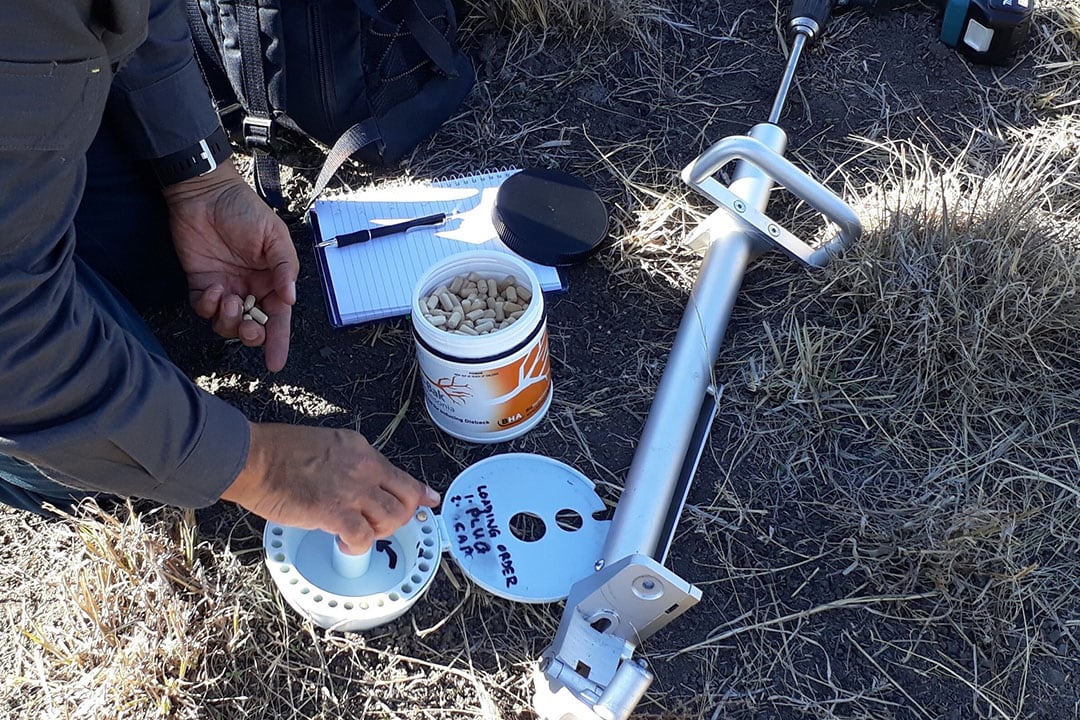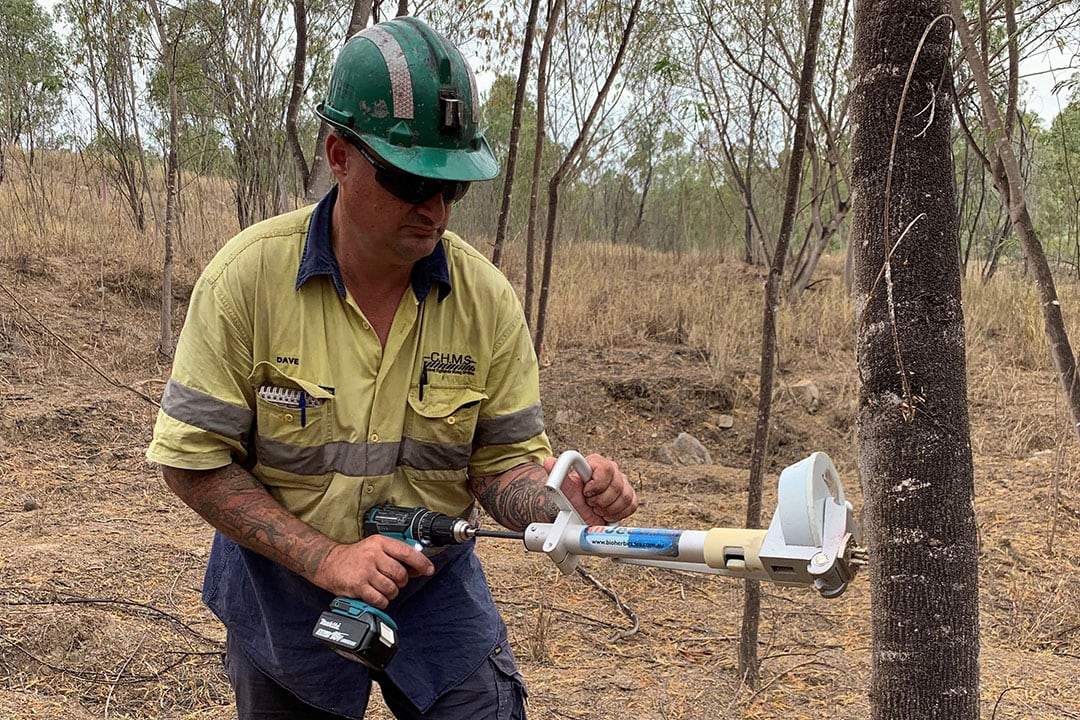Battling invasive weeds with herbicide capsules

Scientists at The University of Queensland in Australia developed herbicide-filled capsules as an alternative to herbicide sprays. They found the capsules are highly effective against a wide variety of weed species.
The herbicide-filled capsules were drilled into the stems of invasive woody weeds. According to The University of Queensland, this method is safer, cleaner and as effective as herbicide sprays.
In fact, according to PhD candidate Amelia Limbongan from The University of Queensland’s School of Agriculture and Food Sciences the method was highly effective against a wide variety of weed species, which pose a major threat to farming and grazing systems. “Woody weeds such as Mimosa bush stifle pasture growth, impede mustering and cause physical and financial damage to animals and property,” Ms Limbongan said.
The portability and convenience of the system, coupled with its proven efficacy and safety, meant the encapsulated herbicide could be used in a variety of settings and locations worldwide.
Text continues underneath image

30 per cent less herbicide
“This method uses 30 per cent less herbicide to kill weeds, and is just as effective as more labour-intensive approaches, which will save valuable time and money for farmers and foresters,” Ms Limbongan said. “It could also lead to better management of weeds in agricultural and environmental systems across the globe, while also protecting workers by practically eliminating their exposure to harmful herbicides.”
A mechanical applicator called the InJecta quickly drilled a hole in the stem of the woody weed, implanting a dissolvable capsule containing the dry herbicide and sealing the capsule into the stem with a wooden plug, bypassing the need to spray over large areas of land.
Text continues underneath video
Non-target plants protected
According to Professor Victor Galea, Plant Pathologist at School of Agriculture & Food Sciences, The University of Queensland, the herbicide is then dissolved by plant sap and kills the weed from the inside and, due to the small amount of herbicide used in each capsule, causes no leakage. “Another reason why this delivery system is so useful is that it protects non-target plants, which are often damaged through accidental contact when using traditional methods such as spraying,” Professor Galea said.
Text continues underneath image

Researchers are continuing to trial the capsule method on several different weed species and have a number of similar products in line for distribution, which are to help farmers, foresters and environmental managers eliminate invasive weeds.
“One of the products tested in this research paper, Di-Bak G (glyphosate), is already being sold in Australia along with the applicator equipment and can be purchased through agricultural supplies outlets across the country,” Professor Galea said. “Three more products are being prepared for registration and we plan to expand this range over time.”
More information on InJecta and the current herbicide capsules are available on BioHerbicides Australia website.
Join 17,000+ subscribers
Subscribe to our newsletter to stay updated about all the need-to-know content in the agricultural sector, two times a week.



